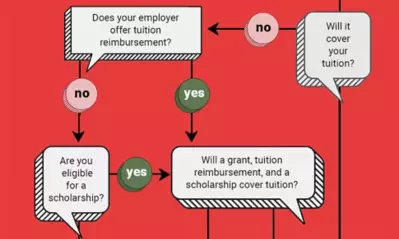Ivory Morris defies statistics to find her sweet rewards

Written by Elizabeth Exline

“Ivory is a walking testimony,” says Alandus Morris. “The things she had to deal with growing up helped mold her into what she is today. … To me, she embodies a true Phoenix. Through setback and pain, the fire in her never goes away.”
Morris is speaking of his wife, Ivory, and it’s easy to see why her story inspires such admiration. From an abusive childhood to a teen pregnancy to hearing “no” more times than “yes,” Ivory’s happily-ever-after is one that statistics wouldn’t have predicted.
A childhood defined by setbacks
Speak with Ivory Morris today, and you might see a soft-spoken woman whose gentle demeanor belies the resolve just below the surface. Her benign outward appearance has served her well. It allows her to quietly observe the lay of the land, assess challenges and opportunities and work toward achieving her goals.
Her goals are often centered on helping others, such as when she volunteers time as the president of the University of Phoenix (UOPX) Hampton Roads alumni chapter or helps the homeless in her community. Other times, her goals are professional, like earning her associate degree
and bachelor’s degree
as she strove to enhance her career prospects.
But before any of that, her goal was just to survive.
“My father was abusive,” Morris explains, “so we grew up in an abusive household where he was beating on our mom. And [the woman] who was supposed to be our babysitter was his girlfriend. So, we got to be in the midst of all that.”

Her mom left when she was about 5 years old, which meant her father’s violence fell exclusively on Morris and her siblings. She recalls going to school with bruises and begging her teachers to not send Child Protective Services (CPS) to her house unless they’d actually do something about the situation.
CPS came anyway, and the beatings continued until Morris was about 12 and finally removed from her father’s care. “We went to live with my mom, and my mom did not know how to deal with us, because by that time we were so broken.”
Her mom was also broken. She’d developed a drug addiction and wasn’t fit to parent.
Meanwhile, Morris, still a child herself, found out she was pregnant. She delivered her son when she was 13.
“People look at a 13-year-old having a baby as a negative thing, but my son was the only thing that saved my life,” she says. “There was nothing else that was worth living for.”
Changing the narrative
Perhaps this transformative love is when Morris’ steadfast commitment to children was born. She is devoted to children — her own, her community’s — and their well-being. But that commitment was challenged when she and her son were living in foster care after being taken away from Morris’ mother. By the time she was 19, Ivory successfully petitioned for custody of her son who’d been separated from her for six or seven months, and they moved to Arizona.
Soon, Ivory had her own apartment and focused on raising her son while making a living. Her parenting method was as direct as her communication style: “I tried to do everything that my parents did not do and tried to avoid the things that they did do.”
Her method worked. “He didn’t get the best mom while he was growing up,” Morris says of her oldest child. “But he did have a good mom. He had a mom who understood that she didn’t want him to be subjected to abuse. That change was necessary. That learning more about behaviors and mental health was necessary. That being better was necessary. That constantly improving and absorbing information was necessary. So, he got a good mom.”
Success, not statistics
Morris’ drive toward constant improvement led her to UOPX, where she earned her associate degree in business and her bachelor’s degree in human services management. (The latter program has since been retired.) The journey wasn’t easy. At first, she was told no grants were available to her, but she refused to take no for an answer and found one especially for foster kids and parents.
She worked full time, raised her son and, eventually, found love. She and Alandus met online in 2001, got married a year later and by 2015 were living debt-free as a dual-income family with four children. Morris was ready to resign from her full-time job and focus on passion projects, like baking for her church and helping children in her community build life skills.
The fly in the ointment came one week later when her husband got laid off.
True to form, Morris didn’t panic. She planned. They’d saved up some money and could sustain themselves on that while they moved to Virginia to be closer to Alandus’ family. There, Morris turned her passion for baking and cooking into a business: JMT Sweets . When her family experienced two unrelated health crises, she turned JMT Sweets to a vegan-only enterprise.
That expanded to classes designed to teach cooking and life skills to teenagers and adults in Chesapeake, Virginia. When the pandemic put a stop to those plans, Morris pivoted and invested in a food trailer.

“My idea was to have this be the trailer that kids can come and color and play on,” she recalls. “When we first brought that, everybody was like, ‘That’s a terrible idea. It’s ghetto. Why would you want to drive around with a white trailer?’ And I’m like, ‘Because I know what I want. I want the kids to be able to color while their parents wait for their food.”
Her vision paid off a few months later during an event for adults. “They started coloring all over the trailer,” she says. “They tagged the trailer with their Instagrams, their business names and their phone numbers. They showed off their drawing skills. It was amazing.”
It’s also a testament to Morris’ sense of what her community needs. Today, she works as a qualified mental health professional helping people who are in crisis. Her 29-year-old son (the child she had when she was 13) is training to take over the food trailer business. Her other children play a prominent role in running JMT Sweets.
These accomplishments — giving back, raising a family, being an entrepreneur — are all born from Morris’ unwavering dedication to family, love and life. And that, ironically, comes from hurt.
“It comes from pain, disappointment and abuse. And my ability to overcome all of that comes from my belief in God. When I was going through everything, God knew exactly what to give me to keep me going.”
Moving, growing, learning and achieving have formed the touchstones of her life. It’s no surprise then that Alandus’ vision for his wife centers on her potential.
“My hope for Ivory in the future,” he says, “is to help her realize her dreams and leave a lasting legacy for generations to come.”

ABOUT THE AUTHOR
Elizabeth Exline has been telling stories ever since she won a writing contest in third grade. She's covered design and architecture, travel, lifestyle content and a host of other topics for national, regional, local and brand publications. Additionally, she's worked in content development for Marriott International and manuscript development for a variety of authors.
Read more articles like this:


